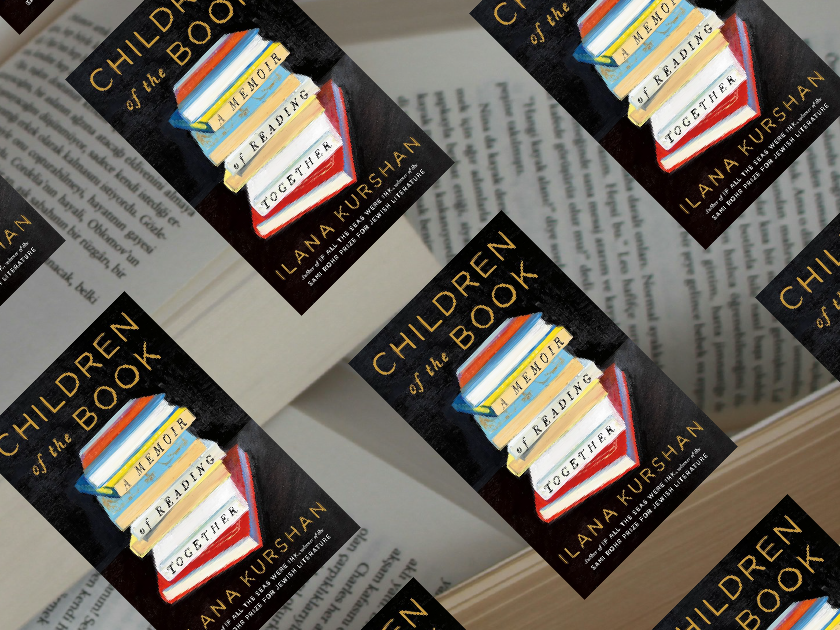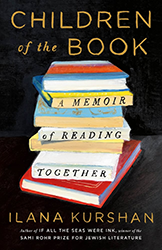Join a community of readers who are committed to Jewish stories
Sign up for JBC’s Nu Reads, a curated selection of Jewish books delivered straight to your door!

I knew the war was over when my husband returned from morning prayers with a stack of plastic chairs from our underground parking garage. I hadn’t yet heard the news of the ceasefire scheduled for seven in the morning, but I knew that if the chairs had come up, our future was looking brighter already.
For the twelve days since Israel had first attacked Iran’s nuclear infrastructure on June 13, Israel’s Home Front Command had issued a ban on gatherings. That meant no school, no going to the library, no eating at restaurants, and no attending synagogue, among other restrictions. The only places where it was permissible to congregate were in bomb shelters. The underground parking garage in our building had been approved as a bomb shelter, and so many of the individuals who would ordinarily pray in their local synagogues were instead gathering each morning in our garage, praying in the empty parking spots, and even setting up a portable ark for the Torah scroll adjacent to the exit ramp. Those who came to pray brought their own plastic chairs and stacked them up against the garage wall when not in use. And so when my husband, Daniel, returned from the garage with the chairs he’d kept down there all week, I knew the days of praying underground were over, which meant, presumably, that the war was over too.
During those twelve days, everyone’s prayers seemed desperately needed. Iran’s ballistic missile attacks had mostly been intercepted by Israel’s air defense system, but each and every casualty was devastating. Our family was extremely lucky in so many ways — we live in Jerusalem, which had received far fewer sirens than the rest of the country. We have a safe room in our apartment, so we were not running downstairs or outside every time there was an alert. And we were all together under one roof, unlike so many of my family friends in which one parent was serving in the reserve forces or stuck out of the country unable to return home. Our kids, ranging in age from five to fourteen, complained that they were bored and that they wanted to go back to school and see their friends. We knew that if they were wishing they were back in school, the situation had to be pretty dire; but we also knew how much worse it could have been.
By reading together, Daniel and I ensured that we were all part of multiple stories — not just the story of war and danger and falling missiles that was always in the backdrop, but also stories about adventurous mice and lonely children and the thrill of scientific discovery.
In our safe room in Jerusalem, we spent many hours together waiting until, at last, the all-clear announcements were issued. During much of that time, I read. Desperate to distract the kids in any way possible, I tried to immerse them in faraway worlds. I read to them E.B. White’s Stuart Little, about a young mouse born into a human family in New York City; despite his small stature — he is just over two inches tall — Stuart displays remarkable maturity and ingenuity, behaving like a dapper young gentleman from a very young age. We read about how Stuart rescued his mother’s wedding ring when it fell down the drain of the sink, and how he borrowed a miniature car to embark on a long journey in pursuit of his best friend, a yellow canary. I’m not sure that my youngest son — who is only five — followed very much of the storyline; every so often he would interrupt me to say, “Wait, remind me, what is happening?” as if his mind had just temporarily wandered. Even so, he and his older siblings were prepared to follow Stuart on all his exploits, sometimes even staying in the safe room well after the all-clear notifications appeared on our cell phone screens.
For twelve days we did not venture far from home, so that we could be close to our safe room should we receive an alert. But we traveled to New York City and beyond with Stuart Little; and then to the midwestern prairies with Patricia MacLachlan’s Sarah, Plain and Tall, who arrives from Maine to care for two young children and perhaps marry their widowed father; and to Happy Acres Camp in California with Beverly Cleary’s Runaway Ralph, a mouse who sets out from home in a miniature motorcycle. In between these stories, my husband, in charge of the nonfiction department, read aloud to us about Michael Faraday and the history of electricity, and about sonar communication among humpback whales. Each of these adventures took us far, but they also brought us close. By reading together, Daniel and I ensured that we were all part of multiple stories — not just the story of war and danger and falling missiles that was always in the backdrop, but also stories about adventurous mice and lonely children and the thrill of scientific discovery.
Now with the ceasefire, we pray we won’t have any more sirens and that people nationwide can begin to feel safer and more secure. I hope the quiet will last, and the chairs from the parking garage can remain upstairs. But the books, I hope, will stay out for a while — even if we don’t have to huddle in the safe room to read them together.

Children of the Book: A Memoir of Reading Together by Ilana Kurshan
Ilana Kurshan is a graduate of Harvard and Cambridge. She has worked in literary publishing both in New York and in Jerusalem as a translator and foreign rights agent and as the books editor of Lilith magazine. Her writing has appeared in Tablet, Lilith, Hadassah, The Forward, Kveller, The World Jewish Digest, Nashim, and The Jewish Week. She lives in Jerusalem with her husband and four children.